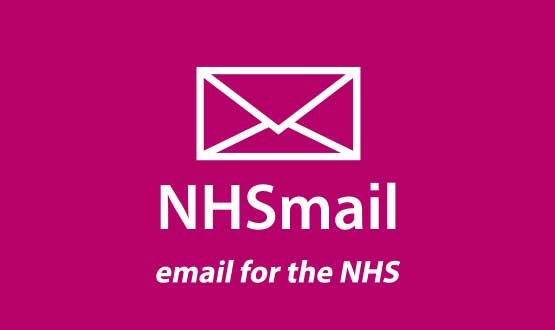NHSMail is a pivotal component in the United Kingdom’s National Health Service (NHS) infrastructure, offering a secure and efficient means of communication for healthcare professionals. This email service, designed specifically for the demands of the healthcare sector, facilitates the seamless exchange of sensitive information, ensuring confidentiality and compliance with data protection standards. Its inception marked a significant step towards modernizing healthcare communication, streamlining processes, and enhancing patient care through improved collaboration among healthcare providers.
The Genesis and Evolution of NHSMail
Launched in the early 2000s, NHSMail was developed in response to the growing need for a secure communication platform within the NHS. The service was designed to meet the specific requirements of the healthcare environment, including stringent security measures and the ability to handle large volumes of sensitive data. Over the years, NHSMail has evolved significantly, incorporating advanced features and functionalities to adapt to the changing landscape of digital healthcare communication. This evolution has been driven by technological advancements, as well as feedback from users who rely on the service daily for clinical correspondence, administrative tasks, and interdisciplinary collaboration.
The platform’s evolution has seen improvements in usability, security, and integration capabilities, allowing it to support a wide range of healthcare activities. From facilitating patient referrals to enabling multi-disciplinary team meetings, NHSMail has become an indispensable tool for NHS staff, fostering a culture of efficiency and responsiveness that directly benefits patient care.
Security and Compliance: The Cornerstones of NHSMail
One of the most critical aspects of NHSMail is its robust security framework, designed to safeguard patient information and comply with legal standards such as the General Data Protection Regulation (GDPR) and the NHS’s own strict confidentiality requirements. The service employs end-to-end encryption, secure login processes, and regular security audits to prevent unauthorized access and ensure that sensitive information remains confidential.
This focus on security and compliance has not only made NHSMail a trusted tool for healthcare professionals but has also paved the way for its integration with other clinical and administrative systems within the NHS. By providing a secure communication channel, NHSMail facilitates the sharing of patient information across different healthcare settings, enhancing the coordination of care and improving clinical outcomes.
NHSMail’s Role in Enhancing Collaboration and Efficiency
NHSMail’s impact on the NHS goes beyond secure email. It serves as a platform for collaboration, enabling healthcare professionals to share knowledge, discuss patient care, and make informed decisions more rapidly. The service supports various functionalities, including calendars, task lists, and directory services, which help streamline workflows and reduce administrative burdens. This level of integration and functionality promotes a more collaborative environment, where information is easily accessible, and communication barriers are minimized.
Moreover, NHSMail’s scalability and flexibility have been instrumental in its adoption across the NHS. Whether for a small general practice or a large hospital trust, the service can be tailored to meet the specific needs of different healthcare settings. This adaptability has been crucial in ensuring that NHSMail remains relevant and continues to support the NHS’s objective of providing high-quality, efficient patient care.
Challenges and Future Directions
Despite its success, the implementation and ongoing development of NHSMail have not been without challenges. Issues such as user adoption, training, and integration with legacy systems have required continuous attention. Moreover, as cyber threats become increasingly sophisticated, maintaining the security of the platform remains a top priority.
Looking ahead, NHSMail is set to play a pivotal role in the NHS’s digital transformation strategy. The future direction of NHSMail includes further integration with clinical systems, the adoption of artificial intelligence and machine learning technologies for advanced data analysis, and the enhancement of user experience. These developments aim to not only improve the efficiency and effectiveness of communication within the NHS but also support the broader goals of innovation and improvement in patient care.
Conclusion
NHSMail represents a critical milestone in the NHS’s journey towards digital healthcare. By providing a secure, reliable, and efficient communication platform, it has significantly contributed to improving collaboration among healthcare professionals and enhancing patient care. The ongoing evolution of NHSMail, guided by technological advancements and the needs of its users, ensures that it will continue to be a cornerstone of the NHS’s digital infrastructure.
The service’s focus on security, compliance, and functionality has set a benchmark for healthcare communication platforms worldwide. As NHSMail continues to adapt and grow, its role in facilitating the seamless exchange of information, supporting clinical decisions, and improving healthcare outcomes will undoubtedly expand. In an era where digital technology is transforming healthcare, NHSMail stands as a testament to the potential of secure and efficient communication to revolutionize patient care.

